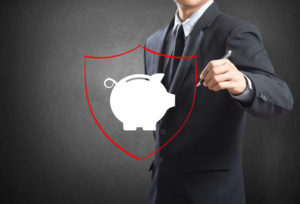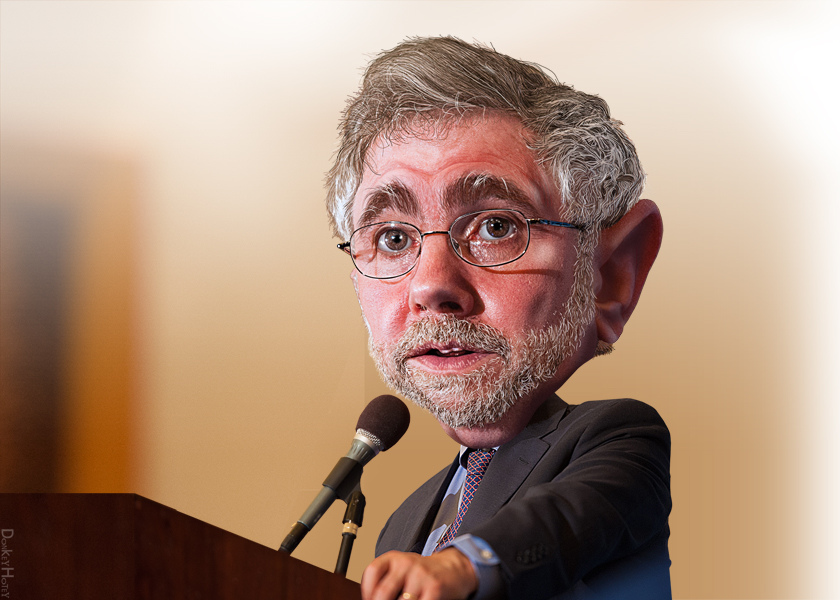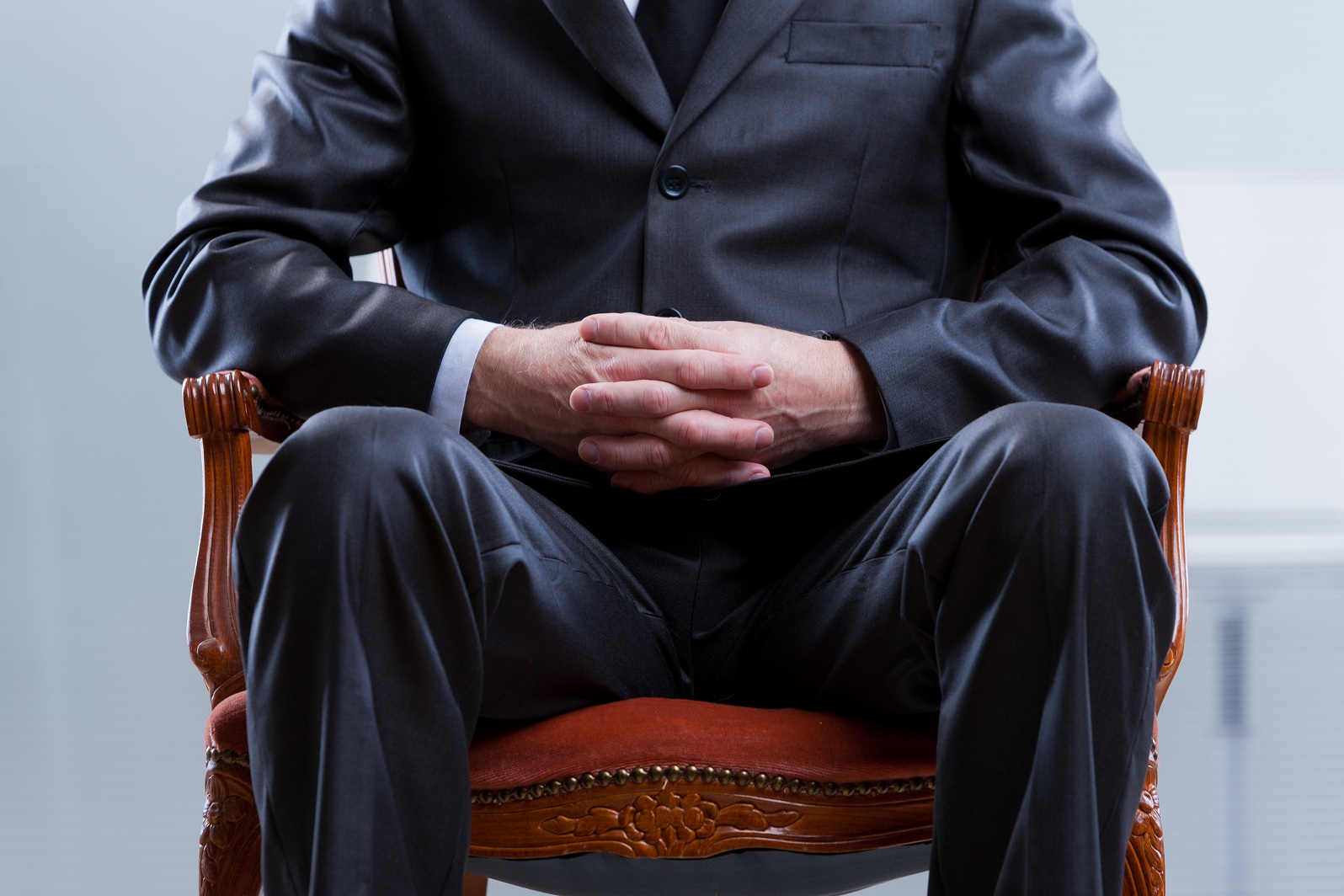How to Protect Yourself From the Next Worldwide Economic Collapse

Founder’s Note: This essay from Mark Ford exemplifies why I am so excited to bring him into the Manward fold. It hits at everything we’re so passionate about. He talks about the value of good ideas… he shows why the economy is so messed up… but best of all, he tells us what in the world to do about it. As the nation frets over the true fallout from the latest crisis… this is a must-read piece.
Making good investment decisions is both a science and an art.
You can, for example, track investment sectors, fund managers, and even investment advisers with precision. You can see their successes and failures. But past performance, as we all know, is no indication of what will take place in the future.
You can calculate with reasonable precision global money flow, government and personal debt, unemployment, the gross domestic product, and so on.
But these data won’t tell you with any certainty what and when some macroeconomic event might happen.
The problem is twofold. For one, the global economy is so damn big and complicated.
Secondly, humanity’s response to economic shifts is equally complex. And this is to say nothing of “black swans” – unpredictable events that cause major turmoil.
Seeing the future is impossible.
Still, as lowly investors, we must try. We must make regular buy, sell, and hold decisions. And we must make general judgments about the market to assess our holdings.
As you may know, I’ve been in the financial publishing business for more than 35 years. In that time, I’ve worked with many of the best investment writers and followed their advice. I’ve even been able to see unpublished analytics that track their performance.
I’ve concluded that most haven’t a clue about the future. But there are some who are actually very good at making specific investment recommendations – for a time.
There are also some who are good at big-picture economic analysis. By good, I mean they are able to write arguments that convince me, a skeptic.
Of those few who are good, about half are perennial optimists. The other half, of course, are perennial pessimists.
What I do is this…
Optimists and Pessimists
I read the best big-picture writers I know – not to “know” what the future holds, but to get a sense of what might happen. Then, I look to specialists for specific advice that would apply.
Around 2004, my favorite pessimists were predicting a collapse of the real estate market, the dollar, and the stock market. They predicted a serious economic recession as a result of the insanely overvalued real estate market and the government’s love affair with paper money.
The optimists were saying not to worry.
I found the pessimists – especially my colleague and business partner Bill Bonner – more convincing.
So what did I do?
I did not sell all my stocks. But I did sell off any stocks I felt might not recover from a major economic collapse.
I did not sell all my real estate. But I sold most of the real estate that wasn’t generating a rental income that would give me more than 5% returns even if rental prices dropped 25% or 30%.
And, for the first time, I started buying gold.
To keep things simple, I bought gold bullion coins. Over the course of two or three years, I bought gold every month until I had a tidy sum stashed away.
By tidy sum, I mean it was enough to support my family in the event of a sustained depression. But I did not bet the farm on gold prices rising because I had no certain knowledge of whether gold prices would go up or down.
My guess is that gold coins at that time came to represent about 5% of my wealth.
As it turned out, the pessimists were right. The economy went south, the stock market followed it, and the price of gold soared.
My stock portfolio went down but not terribly because I had nothing but what I call “legacy” stocks. I owned companies, like Coca-Cola and Nestlé, that I was pretty sure would do well even during a serious recession.
I didn’t sell those stocks, because I had a long-term view. Now, of course, I’m glad I didn’t sell.
And although the value of my real estate holdings went down, I kept making good income from the properties I kept.
Making these adjustments – reducing my exposure to risky assets, focusing on income, and buying gold as insurance against disaster – was about hoping for the best but preparing for the worst.
The collapse of the real estate bubble made millions of middle-class Americans poorer and thousands of bankers, brokers, and other members of the financial-industrial complex richer.
It amounted to a multitrillion-dollar transfer of wealth from Main Street to Wall Street.
In a truly free market, a financial recession has a positive effect. Like a forest fire, it kills off unhealthy businesses and financial practices and replaces them with better ones.
But the U.S. economy is not a genuinely free market. It is highly manipulated by large industries and businesses that persuade local, regional, and national government officials to pass laws beneficial to them.
On top of that, you have a political environment that compels politicians (Democrats and Republicans) to spend money we don’t have, jacking up the national debt.
All of which is to say that, despite what you sometimes hear from the financial media and bullish investors, the U.S. economy is very much in danger of another major, long-term financial collapse, possibly one much larger than the “Great Recession” we experienced in 2008.
It may already be happening. So what shall we do about it?
Shields Against Financial Disaster
Here’s what I always recommend:
First…
Make sure you have what I call a “start over again” (SOA) fund – a store of liquid wealth that can cover the costs of starting your financial life over again if all your intangible assets (stocks, bonds, and cash held in banks) disappear.
The amount of money you should have in an SOA fund depends on your situation. If you are an employee, make sure you have at least one year’s income. If you own a business, make sure you have enough to restart it or a similar business.
Your fund should consist of gold coins and cash stored in easy-to-access places.
If things really do implode, you don’t want to be calling a broker or banker asking them to cash in your accounts only to hear that the government has frozen such transactions.
Second…
If you can afford to buy rental real estate, do so. I’ve said this many times. Rental real estate is a great source of part-time income. It’s easy to understand. And as long as the price is right, it can be very lucrative.
If you can find a single-family three-bedroom, two-bath house for $144,000 that rents for $1,500-plus per month, buy it. Buy as much property as you can in the same neighborhood to make management easy.
If you can’t afford the down payment, you can find partners to work with you. This is something any smart person can do. You don’t need to have a lot of cash.
Third…
Review your stock portfolio to make sure that it is safely invested. This is not the time to be overly speculative. Try to buy only big, cash-flowing businesses sure to weather any “black swan” event in the markets. I suggest you stick to the sorts of stocks I invest in (mostly the world’s most stable, blue-chip, dividend-paying companies).
Investing this way will ensure that your equity holdings survive a large-scale, long-term financial collapse. And if there is a collapse, the decreased stock price of these companies will present a great opportunity to pick up more shares on the cheap.
Finally…
Consider becoming an “international” person. By that I mean having an offshore residence, business, bank account, and passport or residency permit.
This may seem like a very exotic option, but it’s easier and cheaper than you might think. You could, for example, have all three of these things in Nicaragua or Panama for less than $150,000.
Looking offshore gives you several benefits: a safe haven to retreat to if living in the U.S. becomes dangerous, ways to earn extra income with big tax advantages, and a lower cost of living.






